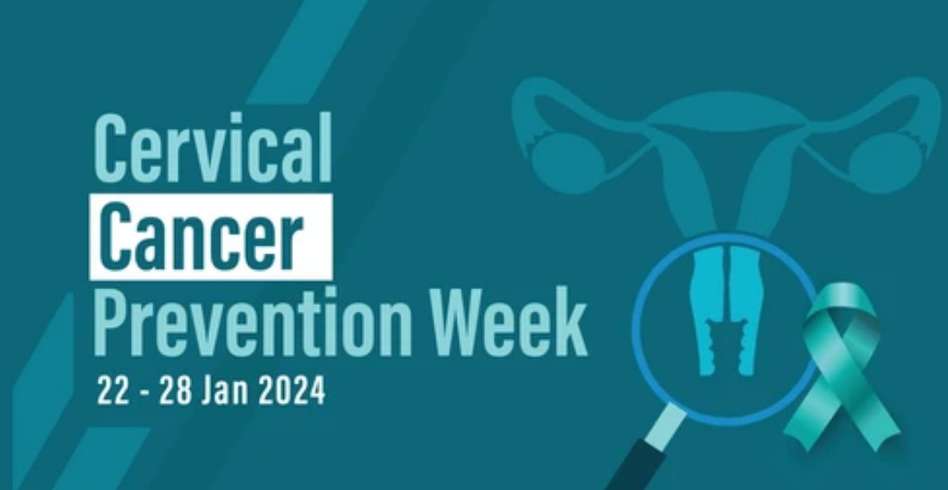Medical negligence in delayed diagnosis of cervical cancer: A crucial discussion for cervical cancer prevention week 2024

Cervical cancer remains a major health concern for women worldwide, and the timeliness of its diagnosis and treatment is crucial. Delays in diagnosis can worsen a patient’s outlook, resulting in the need for additional treatment and, sadly, higher mortality. As Cervical Cancer Prevention Week 2024 approaches, it is vital to shine a light on the role of medical professionals in such delays.
- Understanding Cervical Cancer
- Symptoms of Cervical Cancer
- Importance of Timely Diagnosis
- Examples of Negligence in Diagnosis and Treatment of Cervical Cancer
- Proving Medical Negligence
- Cervical Cancer Prevention Week 2024: Awareness
- How Tees Can Help
Understanding Cervical Cancer
Cervical cancer is a significant public health concern in the United Kingdom. Here are some key statistics regarding cervical cancer cases in the UK:
- Incidence Rates: Most cases of cervical cancer are diagnosed in women aged 30-45, although it can occur at any age after the onset of sexual activity.
- HPV: The primary cause of cervical cancer is a virus called high-risk human papillomavirus (HPV). High-risk HPV can cause changes in the cells of the cervix which, over time, can develop into cervical cancer.
- Screening Programme: The UK has a national cervical screening programme that invites women from ages 25 to 64 for regular screening. This has been effective in early detection and has reduced the incidence rates.
- Vaccination Impact: The introduction of the HPV vaccine has also played a role in reducing the number of cervical cancer cases, particularly among younger women who are vaccinated.
- Annual Cases: As of the most recent data, there were around 3,200 new cervical cancer cases in the UK every year, which is about nine cases diagnosed every day.
- Survival Rates: Survival rates for cervical cancer have increased over the past few decades due to better screening and treatment options. The five-year survival rate for women diagnosed with early-stage cervical cancer is relatively high.
- Regional Variation: There might be regional variations in incidence and mortality rates within the UK, with some areas having higher rates than others, often linked to socioeconomic factors and access to screening services.
Please note that these statistics can change over time, and for the most current data, you should refer to recent reports from sources like Cancer Research UK, the Office for National Statistics, or the NHS.
HPV
HPV is a common virus which most people (eight out of 10) get infected with at some point. In most people, it will go away within two years without causing any problems. There are many types of HPV and cervical cancer is linked to infection with high-risk types of HPV which do not go away on their own.
HPV does not cause any symptoms so cervical screening tests in England, Scotland and Wales look for high-risk HPV first and, if a screening sample is positive for high-risk HPV, a patient is invited back for cervical screening in one year (rather than in three years). If a patient has high-risk HPV three times in a row, they will be invited to colposcopy for more tests. If a patient has high-risk HPV plus cell changes, they will be invited to colposcopy for further tests.
A colposcopy is an examination normally done in a hospital or local clinic where a closer look is taken at the cervix and a biopsy may be taken. Depending on the results, treatment may be offered to remove the abnormal cells before they become cancerous or, if there is cancer present, further treatment will be offered, which depends on how large the cancer is and whether it has spread to anywhere else in the body.
Symptoms of Cervical Cancer
Symptoms can include:
- Abnormal vaginal bleeding
- Pelvic pain
- Pain during intercourse
- Unusual vaginal discharge
In the later stages of cervical cancer, symptoms can also include:
- Unexplained pain in the lower back or pelvis
- Unexplained weight loss
If women present with these symptoms, they should contact their GP. The symptoms may or may not be due to cervical cancer, but seeing a GP can ensure that they are thoroughly investigated.
However, for some women, cervical cancer does not cause any obvious symptoms which is why women need to attend their cervical screening tests (previously known as smear tests) when they are offered.
Diagnosis and Treatment
Diagnosis of cervical cancer can include investigations such as:
- Cervical screening tests
- Colposcopies
- Biopsy
- Scans
- Hysteroscopy (looking inside the womb with a narrow telescope and camera)
Treatment options range from surgery to chemotherapy, depending on the stage of the cancer when diagnosed. Radiotherapy and brachytherapy are other treatments that can be offered.
Importance of Timely Diagnosis
Early detection is key to increasing survival rates and limiting the extent of treatment that a woman may need. A delayed diagnosis can allow the cancer to progress, leading to the need for more aggressive treatment and worse outcomes (such as a lower chance of recovery or increased risk of the cancer coming back).
Examples of Negligence in Diagnosis and Treatment of Cervical Cancer
- Failure to offer cervical screening tests
- Failure to refer a patient to a hospital specialist for further investigations
- Misinterpretation of cervical screening results
- Misreporting of colposcopy results
For instance, a GP may neglect to invite a patient for cervical screening when it is due.
Alternatively, where a patient presents with symptoms such as abnormal vaginal bleeding (e.g. between periods or after the menopause), a GP may fail to make an appropriate referral for further investigation.
There are also cases where abnormal cervical screening test results are incorrectly reported as being normal, or colposcopy results are misreported as normal, thereby delaying the diagnosis of cervical cancer.
Proving Medical Negligence
All healthcare providers owe a duty of care to their patients. To establish a medical negligence claim, it needs to be shown that the healthcare provider breached their duty of care towards their patient (failed to provide an acceptable standard of care) and that the patient has suffered harm because of negligence (this is known as causation).
The harm suffered by a patient may be physical and/or psychiatric harm, and financial losses suffered because of the negligence are also recoverable as part of a medical negligence claim in addition to a sum of compensation for avoidable pain and suffering. It may also be possible to recover compensation for future financial losses that will be incurred as a result of the negligence (such as future medical treatment costs).
Cervical Cancer Prevention Week 2024: Awareness
In 2023, Jo’s Trust launched its End Cervical Cancer campaign. NHS England has pledged to eliminate cervical cancer by 2040 but, to make this happen, programmes for HPV vaccinations, cervical screening and treatment for cell changes need to be as effective and easy to access as possible.
We also consider that it is imperative to address the issue of delayed cervical cancer diagnosis due to negligence, to bring about system improvements, professional training, and patient awareness.
The upcoming Cervical Cancer Prevention Week 2024 is an opportunity to unite in the fight against cervical cancer.
How Tees Can Help
Tees offers ‘no win, no fee’ agreements for the investigation of medical negligence claims – this means that no costs associated with a claim are payable unless a claim is successful. If a claim is successful, limited costs are payable from the compensation recovered, meaning we can guarantee our clients that they will receive at least 75% of the compensation awarded.
Call for a FREE initial consultation on 0800 013 1165
Our specialist lawyers are happy to give initial advice on a potential claim, advising you as to whether a claim is likely to succeed.
A number of our lawyers, including Natalie Pibworth, who is a senior solicitor in the medical negligence department at Tees, have experience in dealing with claims involving delayed diagnosis of cervical cancer and understand the sensitivity required when helping with such claims.
If you would like further information or to discuss a potential claim, our specialist lawyers are ready to assist you.
Please note that the content of this article is for information purposes only and should not replace professional medical advice.
Chat to the Author, Natalie Pibworth
Senior Associate, Medical Negligence, Chelmsford office
Meet Natalie
- Areas of expertise
- Accreditations
- Testimonials
Anonymous
Chelmsford
'Tees worked hard to investigate and always came back to cross-check their finding with me or my wife. All the staff I came into contact with were very nice, helpful, polite and professional. The outcome has turned out to be fantastic. My family and I can rest assured that we now have security'
Anonymous
Chelmsford
'We value the holding to account for the death of our brother that has taken place. The financial settlement is important but the process of disclosure and hopefully system change is the real gain for us'
Anonymous
Chelmsford
'Thank you very much, your help throughout the whole process has been invaluable and so appreciated'
Miss SW
Chelmsford
'Thank you so much for your work and your support. It has been so lovely to have someone fight for my corner and get some compensation for what happened. I massively appreciate it and the work you and your team have done for me'
K Bartholomew
Chelmsford
'Tees Law responded with immediacy and the utmost professionalism regarding a medical negligence enquiry. I found the communication, attention to detail and knowledge of the subject to be very impressive, and a legal service I could trust. I would certainly consider using them for legal matters in the future. A personable, reassuring and proactive service. Recommended'


